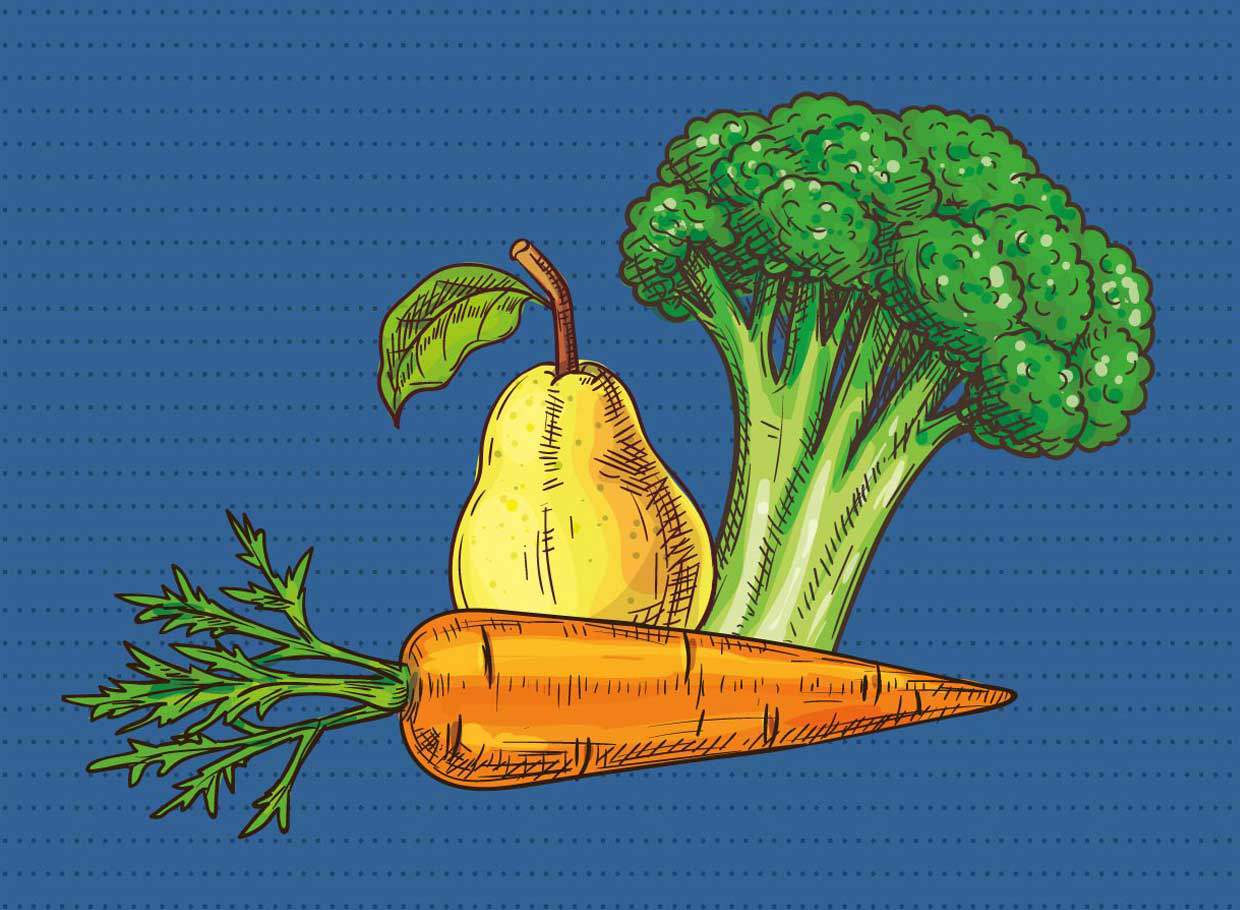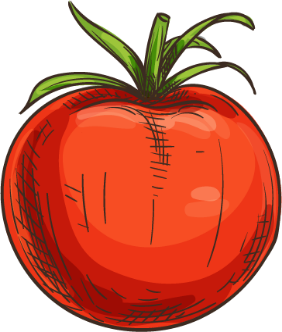
Sustainable Lunchrooms: Plant Forward
The plant-forward trend keeps growing, and we’re big supporters. The Chef Ann Foundation’s plant forward initiative, More Plants Please!, drives more plant based meals in schools nationwide. With recipes, information, and marketing materials, we equip districts with the resources necessary to implement environmentally-friendly, plant forward items into school menu cycles.

Sustainable Lunchrooms: Plant Forward
The plant-forward trend keeps growing, and we’re big supporters. The Chef Ann Foundation’s plant forward initiative, More Plants Please!, drives more plant based meals in schools nationwide. With recipes, information, and marketing materials, we equip districts with the resources necessary to implement environmentally-friendly, plant forward items into school menu cycles.
About More Plants Please!
Chef Ann Foundation programming centers on supporting schools in developing and sustaining school food operations that serve healthy, fresh food made from scratch. More Plants Please! offers recipes, promotional materials, and resources designed to encourage plant based proteins in schools. Plant based proteins like beans, tofu, soy, yogurt, and tempeh are all creditable in the USDA meal pattern, and are nutritious and delicious additions to school food menus.
Why Have More Plant Forward Meals in Schools?
In the United States, more than 30 million students eat lunch every day. If schools incorporated plant forward meals into their operations, the impact on the environment, student health, and school food finances could be huge. Because schools serve such a large population, serving a vegetarian or plant-based entree once a week or once a month is still beneficial.
Plant forward meals focus on fresh fruits and vegetables, whole grains, and reduced meat proteins to introduce students to a healthy diet at a young age. A diet focused on plants is also better for the environment, as plants take fewer resources to produce than meat.
To support schools in offering more plant based, scratch-cooked options we developed new recipes that fit USDA meal requirements and have been tested in school kitchens and taste-tested by students. We also developed educational and eye-catching marketing materials to show why plant forward is so important and the impact on both the environment and student health. Plant forward does not mean changing an entire meal program, but rather including plant forward options that can have big results.
Getting Started
Check out the recipes, share the educational marketing materials, and get the facts on why more plants are healthier for our bodies, our planet, and our school food operations. You can also watch the recorded session of our webinar here.
Special Thanks to Friends of the Earth and Novato Unified School District for their support of More Plants Please!
How It Works
Plant Forward Continuum
Schools can start slowly: begin by reflecting on the current menu, then strategically add or adjust recipes that move the overall menu along the continuum. Schools can find recipes that fall along each point of the continuum in the recipe section of The Lunch Box.


How It Works
Plant Forward Continuum
Schools can start slowly: begin by reflecting on the current menu, then strategically add or adjust recipes that move the overall menu along the continuum. Schools can find recipes that fall along each point of the continuum in the recipe section of The Lunch Box.
How to Get More Plants into Your School
More Plants Please! consists of two main resources for school districts: Recipes and Marketing & Promotional Materials. Together, these recipes, marketing materials, and resources can help any school district take the first steps towards a healthier student population and a healthier planet.
Recipes & Menu Cycles
We consider a recipe to be plant forward if it applies to one of the following:
- Is free of animal protein
- Is vegetarian
- Is a traditional meat-based recipe where some of the meat has been replaced with plant based proteins that credit to the meal pattern
We’ve compiled a complete list of the new recipes developed specifically for More Plants Please! (in addition to existing plant forward recipes) on the Recipes page. These recipes include dishes like Chickpea Masala, Zucchini Boats, and Quinoa Burgers to introduce children to new and delicious menu items that help establish healthy eating habits with a positive environmental impact. These recipes are also combined to create six one-week plant forward menu cycles that still offer meat-based options but are focused on incorporating more fruits and vegetables, whole grains and plant based proteins into meal programs.
Promotional Materials
To encourage students to eat more plants and try more plant based meals, download and print large (24 in x 36 in) wall posters to hang in classrooms, hallways, and the lunchroom. These posters highlight both the health benefits and the positive environmental impacts of eating more plant forward meals.
To cultivate a plant forward community in and out of school, you can download and print two flyers that explain what plant forward means, why it’s healthier, and how to eat more plant based meals. The take-home flyer for families includes ideas for making one-bowl plant forward dinners to encourage the whole family to eat less meat and more vegetables, and the flyer for staff encourages plant forward appreciation, action, and support amongst your school faculty and staff members.
We’ve also compiled an annotated list of links to research and news articles here.
Plant Forward
School Food Institute
Our online professional development course dives into the financial benefits of meatless meals, how to alter recipes and menus to include plant proteins, and how to market these new entrees to students.

Healthy Kids Collaborative
What happens when the Culinary Institute of America brings school nutrition professionals, chefs, non-profit leaders and healthy food companies together to think about what is needed to create school food that better meets students’ appetites? They pilot a three-year project dedicated to creating culinary inspired, USDA compliant, plant forward recipes for school meals nationwide. The CIA’s Healthy Kids Collaborative, with support from Whole Kids Foundation, is excited to bring you the first 30 of 100 recipes! Click here to view the current recipes.

Chefs Tested
Chefs from school districts across the country came together to plan and work on the creation of culinary inspired plant forward recipes that are compliant for the National School Lunch Program. Over a one-year period, each chef worked to develop healthy and delicious recipes, testing them in their home districts.

Chefs Collaborated
In May 2019, the chefs gathered at Napa Valley Unified School District (NVUSD) in California for the final stages of recipe development. Shifting from each individual school district and coming together to strategize, plan and problem solve was a luxury that school chefs don’t always have.

Chefs Created
Coming together in one kitchen to prepare the recipes to scale really allowed the development process to flourish. It brought years of experienced chefs together from all parts of the country, each representing their own unique community. It allowed for shared knowledge, culinary problem solving and increased passion for this work.

Kids Tested
A team of local parent volunteers, the chefs and non-profit representatives split up into groups to visit 10 schools throughout the district and tested 3-4 recipes in each school during lunch. Through the tastings, students had the opportunity to try some unfamiliar items such as tofu and quinoa.

Kids Voted
In each school, volunteers solicited feedback from the kids, asked them to vote for their favorite dishes and captured their comments. Some recipes were clear favorites, like the Amazing Lo-mein and Mango and Black Bean Quinoa Salad. Roger, a third-grade student, remarked, “I’ve never had quinoa. This tastes like lemon—sweet and tasty.” Some of the most amazing responses came from the cafeteria staff, who initially didn’t think the kids would take the samples—but were amazed to see students’ excitement around the new dishes.

Recipes Finalized
Based on feedback, the chefs modified some of the recipes and adjusted some production methods. They were then finalized and ready for crediting. After a thorough development and testing process, we are excited to offer over 30 culinary-inspired, plant-forward recipes to all schools nationwide!
Plant-Based Toolkit
Here’s a useful toolkit to support schools in offering more plant-based, scratch cooked options. We’ve developed these recipes that fit USDA meal requirements and have been tested in school kitchens and taste-tested by students. We also developed educational and eye-catching marketing materials to show why plant-based meals are so important and the impact on both the environment and student health.
This plant-based toolkit provides all the necessary resources to set you up for success: examples of kid-approved recipes, tips on sampling new menu items, and marketing tools to share with your audience. To download, just click the orange icon below!

Plant-Based Toolkit
Recommended Next Topic: Plant Forward Recipes
We test all recipes on The Lunch Box in school kitchens and lunchrooms. Students have tasted and approved these recipes, so you can feel confident serving them in your schools.
Recommended Next Topic: Plant Forward Recipes
We test all recipes on The Lunch Box in school kitchens and lunchrooms. Students have tasted and approved these recipes, so you can feel confident serving them in your schools.








